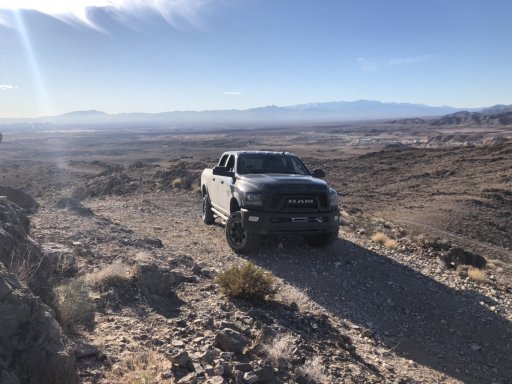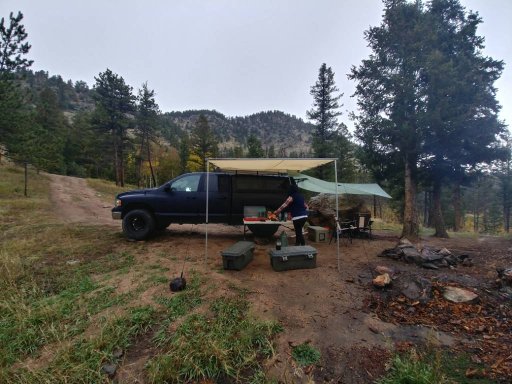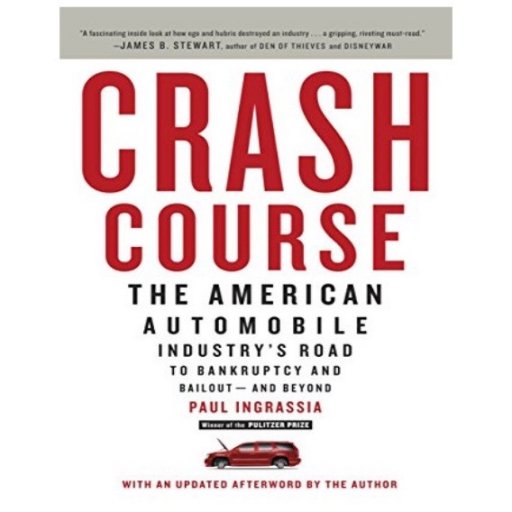Pick-up Trucks
- Thread starter PacingTheCage
- Start date
-
Guest, UPDATE We went through the site migration runbook and completed all steps. We will need to complete the migration next week, but will leave the forums up for the weekend. A few days after maintenance, a major upgrade revision to the forum site will occur.

Influencer I
- 2,358
- First Name
- Dillon
- Last Name
- Wilke
- Member #
-
20298
- Ham/GMRS Callsign
- KJ7LVO/ WRQL275
- Service Branch
- USAF
Quite the opposite, im actually an active volunteer in an environmental stewardship group, but I will admit im not your typical environmentalist. I am a big time gear head so naturally I will admit sometimes I am at odds with myself.Do you hate the enviroment? Only things wrong with dpf egr systems is that they rob some power (5-20hp) and eventually break like any other part. Also you dont get to roll black smoke on acceleration just clear clean h20, block off the egr with a plate and your dpf system will last alot longer since the soot wont be recirculating, also the addition of oil catch cans will keep the engine and turbo clean and working much longer. Most folks abuse and overload diesels just because they are diesels, do what we do with diesels and see how long that gas engine lasts. My colorado duramax weighs 6300lbs its rated to tow 7700lbs and ive tow more than 10000lbs with it on multiple occasions cows weigh alot especially in the mud, I get around 28 mpg on my diesel if all the tires are aired all the way up with no load, i get around 19 when ive got the duramax maxed out.
I think you didnt fully understand what I was getting at, I could have been clearer. 90% of people who run diesels dont need them, and would be better off with a gas engine from a long term economic stand point due to the added complexity of the after treatment system. And I do like the mechanical diesels a lot more for many reasons, one is tenability (second is reliability). While most go the black smoke show rout it is actually extremely easy to get 24mpg out of a full sized pickup running the old 12 valve Cummins B series, while I have seen 32mpg out of one running the P pump. Meanwhile new diesels actually use more fuel to clean up the exhaust, every time you go into regen the engine over fuels to create a secondary burn in the DPF to burn out the soot (this is my biggest beef with after treatment, how does burning more fuel benefit us? Im pro clean air, but I think we should be doing it with efficiency standards, not necessarily tail pipe emissions measurements). I have a perty good understanding of this as I work at a Caterpillar dealership and am a truck engine technician that has been through the Caterpillar dyno analyst class, as well as EPA 2007 classes. To the comment about just H2O coming out of the tail pipe, no, we are actually finding that DEF is extremly toxic at the tail pipe. Also blocking off the EGR system can actually shorten DPF life and the life of other components by increasing combustion chamber temps and thus EGTs and throwing off the regen process. Finally oil catch cans while a good idea (I hate oil leaks for TONS of reasons) they do nothing to increase the reliability or longevity of the engine. They are just a responsible piece of kit to keep oil off of the ground.
And finally to over working gas engines, people all over have been abusing and over loading small block V8s from the big three since the beginning of the V8. Thats not to say its ideal, but I have pulled 12K at 18K gross with a 305 Chevy V8, and yes it did great.
In my mind diesel is where gas engines were in the 70s and 80s. They are using bolt ons and band aids to reduce tail pipe emissions. But like gas engines we will see new diesels that have been radically redesigned and will make more power, and run cleaner without the reliability issues of after treatment.
Last edited:
I've had my best luck with Mopar stuff.I see Ram is pretty low on that list for reliability. If the dash cracking is part of their study I suppose I can see why. That doesn't stop the truck though.
My wife has been through several including a Caravan when the kid was younger, and a Jeep Patriot that is FAR better than anyone would say.
My last Ram 4x4 was trouble free as well, and the new one is a 2016 so it's not new anymore. No problems.
Boostpowered
Rank VI

Member III
Sometime weve got to grin and grit our teeth till things get better i guess. My little 4 cylinder duramax only puts out 180 hp in stock North american form, overseas where dpf isnt a thing they are making 200hp stock. If i removed all the emissions equipment and chip tune the colorado i may be able to push it to near 300hp before the tranny blows up due to the torque.Quite the opposite, im actually an active volunteer in an environmental stewardship group, but I will admit im not your typical environmentalist. I am a big time gear head so naturally I will admit sometimes I am at odds with myself.
I think you didnt fully understand what I was getting at, I could have been clearer. 90% of people who run diesels dont need them, and would be better off with a gas engine from a long term economic stand point due to the added complexity of the after treatment system. And I do like the mechanical diesels a lot more for many reasons, one is tenability (second is reliability). While most go the black smoke show rout it is actually extremely easy to get 24mpg out of a full sized pickup running the old 12 valve Cummins B series, while I have seen 32mpg out of one running the P pump. Meanwhile new diesels actually use more fuel to clean up the exhaust, every time you go into regen the engine over fuels to create a secondary burn in the DPF to burn out the soot (this is my biggest beef with after treatment, how does burning more fuel benefit us? Im pro clean air, but I think we should be doing it with efficiency standards, not necessarily tail pipe emissions measurements). I have a perty good understanding of this as I work at a Caterpillar dealership and am a truck engine technician that has been through the Caterpillar dyno analyst class, as well as EPA 2007 classes. To the comment about just H2O coming out of the tail pipe, no, we are actually finding that DEF is extremly toxic at the tail pipe. Also blocking off the EGR system can actually shorten DPF life and the life of other components by increasing combustion chamber temps and thus EGTs and throwing off the regen process. Finally oil catch cans while a good idea (I hate oil leaks for TONS of reasons) they do nothing to increase the reliability or longevity of the engine. They are just a responsible piece of kit to keep oil off of the ground.
And finally to over working gas engines, people all over have been abusing and over loading small block V8s from the big three since the beginning of the V8. Thats not to say its ideal, but I have pulled 12K at 18K gross with a 305 Chevy V8, and yes it did great.
In my mind diesel is where gas engines were in the 70s and 80s. They are using bolt ons and band aids to reduce tail pipe emissions. But like gas engines we will see new diesels that have been radically redesigned and will make more power, and run cleaner without the reliability issues of after treatment.

Enthusiast III
It's all about perception and use. Tacos are a good Wheeling platform with a bunch of vendor support but less useful for overlanding since they have the power of a Siberian gerbil. I bought the Ram for exactly what you stated. The drawback is that there aren't as many overlanding type vendors for full sized trucks so when you do find a good product it's generally overpriced.Considering a pick-up and a four wheel camper. I see a lot of Tacoma’s and Tundra’s but rarely see domestic pick-ups. Curious as to why this is the case. Are domestic pick-ups not off-road/overland capable? Less after market parts/upgrades?
Thanks

Enthusiast III
That said, if I had to choose a rig today, it would be a jeep truck (if I had a smaller trailer) or a 2019+ Ram Rebel due to the added payload.

Member III
- 2,268
- First Name
- Scott
- Last Name
- Viking
- Member #
-
17968
- Service Branch
- Air Force Veteran
I imagine aftermarket companies will be quick to bring out overland and offroad accessories for the Jeep Gladiator Truck compared to other domestic truck makers.

Member I
Ram has had some well known transmission issues in the past. In my personal experience, the Rams in the fleet at my work have had several front end issues in recent years; Steering/alignment, hub failures and even a total diff failure. This all from 6 trucks within 5 years old. I still like Dodge/Ram though, they're a great shipping container for Cummins.I have 320,000 on the clock on my '95 Cummins.
I see Ram is pretty low on that list for reliability. If the dash cracking is part of their study I suppose I can see why. That doesn't stop the truck though.
Joking aside we also have Ford and Chevy trucks with their own problems. You show me a Super Duty without an exhaust leak and I'll be amazed. The two Chevy's both have had alignment issues and buggy electronics.

Influencer I
- 2,358
- First Name
- Dillon
- Last Name
- Wilke
- Member #
-
20298
- Ham/GMRS Callsign
- KJ7LVO/ WRQL275
- Service Branch
- USAF
You are hitting at my frustration with this comment, in Europe they regulate based off of efficiency rather than tail pipe emissions. So the same engine runs better (more power and more reliability) and uses less fuel. It just makes me wonder if its really worth it, because if youre burning less fuel to do the same work, isnt that actually cleaner?Sometime weve got to grin and grit our teeth till things get better i guess. My little 4 cylinder duramax only puts out 180 hp in stock North american form, overseas where dpf isnt a thing they are making 200hp stock. If i removed all the emissions equipment and chip tune the colorado i may be able to push it to near 300hp before the tranny blows up due to the torque.
Depends on what gases are coming out the tail pipe. Which is why emissions are measured at the tail pipe.if youre burning less fuel to do the same work, isnt that actually cleaner?
But it is all a game until the world goes pure electric.
No argument from me there.Ram has had some well known transmission issues in the past. .
I spent over a year watching and waiting for a Cummins with a manual behind it. Dodge couldn't build an automatic to save their lives.
I wanted something that could tow my camper and off-road wherever I wanted to. I had a Jeep but I needed more towing capacity. I went with a Power Wagon. I have heard all the Ram reliability comments but I haven’t had any more issues with my Rams than my friends with their Chevy, ford and Toyota’s. I considered a titan pro 4x prior to this truck too. 


Member III
- 2,827
- First Name
- Jim
- Last Name
- covey sr
- Member #
-
16986
- Ham/GMRS Callsign
- none - BREAKER BREAKER HAND HELD CB AND WALKIE TALKIE
It is funny how a vehicle can change from year to year on the quality you want. I read 4x4 and Off road magazine articles and they have been complaining for years about American off road capable trucks. They report that one of the reason for a cushy (not so capable) truck is due to the fact that now days women drive these vehicles more than they use to. The women don't use the vehicle the same way as a man might but they are demanding the cushy vehicles due to the way they drive them and they want comfort, easy riding, luxury type cars and not so trucky feel to these vehicles. In turn the manufacturers oblige the gentle ladies with a vehicle that when used in a rough manner will be a vehicle less dependable. In other words "your damned if you do and damned if you don't." Add in the factor of design obsolescence and you have a car that is traded in or done away with far more often that the (example) Japanese will do. It's the American cooperate way folks !Well of course I can appreciate your point of view...if I had a truck with 375,000 miles on it I would certainly feel very good about its brand. I'm not a die hard fan of anything...too many variables. I know the 2008 model F350s had a lot of issues due to being the first year of some changes and most people who had that year had issues and hated it. 2007 and 2009 year owners loved the F350. So not only is it hard to compare different makes, its also hard to compare the same make with different years of manufacture. What ever gets me from Point A to Point B with the least amount of grief is my new favorite... :)

Member III
- 2,827
- First Name
- Jim
- Last Name
- covey sr
- Member #
-
16986
- Ham/GMRS Callsign
- none - BREAKER BREAKER HAND HELD CB AND WALKIE TALKIE
I think the critics are not taking into consideration that the Germans almost ruined Chrysler. Since being brought back to the USA, Chrysler has been fighting an up hill battle. I think they are winning that battle and I applaud them. In my area Ford was King, especially for the diesels. A few years ago Ford did not listen to the buyers here in NM and buyers switched to Dodge. This is Dodge country now and Ford finally did do to diesels what buyers wanted after about 4 straight years of going down hill on sales. This community is happy with what Dodge has done . I priced a Ford recently that fit my likes. In turn I priced a dodge with as many likable features as the ford. The dodge was almost 20,000 $ cheaper and still cost $44,000. I cant afford either but there is a story there somewhere.I wanted something that could tow my camper and off-road wherever I wanted to. I had a Jeep but I needed more towing capacity. I went with a Power Wagon. I have heard all the Ram reliability comments but I haven’t had any more issues with my Rams than my friends with their Chevy, ford and Toyota’s. I considered a titan pro 4x prior to this truck too. View attachment 101843
If you are going to link a study, maybe do the most recent one.We should really all stop saying new American cars and trucks, save for the luxury brands, are just as reliable as the traditional imports. American makers tend to outdo the imports in a lot of ways, yes, but reliability is not one of them.
View attachment 101519
Here, Chevy was the best among American trucks, but was still 16% more likely to have problems than Toyota. Lexus completely outdid the competition.
Most of that is because the Japanese executives are more tolerant of modest growth, as opposed to chasing big paydays with huge model changes. The Tundra is coming up on 14 years old with little more than occasional facelifts, but they still sell 200k per year because they are outstandingly reliable.
The 4Runner is now 10 years old, and as you can see below, it is as solid as anything. Having spent a good deal of time on Ford truck forums, these are considered "ancient" in those circles. Hell, I saw guys complaining about how the new SuperDuty was getting old having been laat updated in 2017. All-new aluminum bodies, huge power and torque figures, ever-increasing towing capacities, and gucci interiors are benchmarks for American trucks. But, we can't have your cake and eat it too; these American makers simply can't afford to do the same level of QA testing with these all-new parts and equipment with all these refreshes and keep the vehicles competitively priced. (More specifically, they tend to spend their R&D money building new models every few years, rather than every 7-10 years and simply refining them in the interum).
View attachment 101520
Also look how it changes so much year to year. From my first link to my second. They don’t list what their definition of a “problem” is so it’s hard to really use these for useful discussion.
2019 U.S. Vehicle Dependability Study (VDS)
COSTA MESA, Calif: 13 Feb. 2019 — It’s a continuing love story for most owners and their vehicles as overall dependability for three-year-old vehicles improves 4% from last year, according to the J.D. Power 2019 U.S. Vehicle Dependability StudySM (VDS).
2018 U.S. Vehicle Dependability Study
On a day when people traditionally demonstrate their love for another person, consumers’ affection for their three-year-old vehicles is equally apparent in the J.D. Power 2018 U.S. Vehicle Dependability StudySM (VDS). Overall vehicle dependability improves 9% from 2017, the first time the...

Influencer I
- 2,358
- First Name
- Dillon
- Last Name
- Wilke
- Member #
-
20298
- Ham/GMRS Callsign
- KJ7LVO/ WRQL275
- Service Branch
- USAF
Dodge/ Chrysler actually makes a damn good transmission, its maintenance and operation practice and lack of information that cooks them. My 93 Dodge had 230K on the original trans and that was behind a tuned a 12valve Cummins that was worked. Even then it worked just fine, but as my dad was going to be towing 18K from Delaware to Idaho he decided to swing in a new unit so there was no worries about a failure. We would have done this with any auto honestly. The key to keeping a Dodge transmission alive is first and for most running the right fluid. All of those over drive transmissions were designed to run full synthetic fluid, the Chrysler spec ATF+. Unfortunately its hard to come by even now and so Chrysler said you can run Dextron III in them to get by, but it doesnt flow through the tighter passages of the case and doesnt lubricate the clutches well enough for long term use. So you get slower flow rates wich starves the over drive unit, and increased heat and poor shifts which kills them very quickly. Its kinda like running type FA ATF in a Hydramatic, it will work but not for long. The other big issue is the fact they dont circulate fluid in park. This was done to provide faster warm ups and improved performance of the transmission in cold weather. Unfortunately if you idle them in park for too long the torque converter will generate enough heat in the stagnant fluid that it will burn it, then its game over.No argument from me there.
I spent over a year watching and waiting for a Cummins with a manual behind it. Dodge couldn't build an automatic to save their lives.
Also the manuals when run behind the Cummins have lots of well documented issues too. The Getrags are known for input bearing failures, and the NV4500s are known for 5th gear failures. And to reinforce the importance of proper oil spec, current conventional gear oil doesnt play well with brass syncros. So if you dont check the bottle to make sure its good for syncroed transmissions its game over there too.
Also didnt Toyota and Honda get in a lot of trouble about 10 years back for buying off outfits like Consumer reports to lie about their products? Also one of the Issues that dinged the GMC Terrain was a simple typo on the tire size decal. Could it be a problem, sure, but its far from a mechanical issue. So that illustrates how broad the term that is applied is when talking about automotive "reliability".If you are going to link a study, maybe do the most recent one.
Also look how it changes so much year to year. From my first link to my second. They don’t list what their definition of a “problem” is so it’s hard to really use these for useful discussion.
2019 U.S. Vehicle Dependability Study (VDS)
COSTA MESA, Calif: 13 Feb. 2019 — It’s a continuing love story for most owners and their vehicles as overall dependability for three-year-old vehicles improves 4% from last year, according to the J.D. Power 2019 U.S. Vehicle Dependability StudySM (VDS).www.jdpower.com
2018 U.S. Vehicle Dependability Study
On a day when people traditionally demonstrate their love for another person, consumers’ affection for their three-year-old vehicles is equally apparent in the J.D. Power 2018 U.S. Vehicle Dependability StudySM (VDS). Overall vehicle dependability improves 9% from 2017, the first time the...www.jdpower.com
Last edited:

Member III
Very fair! Still, while the more recent data show Chevy has continued its impressive improvements, Ford, GMC, Ram, and Jeep (lumping in simply because its popular here) are still pretty far down there. Even in what is apparently the worst year for Toyota, the 2018 study of 2015 vehicle, owners were still 20% more likely to have a problem with their Ford vehicles than with Toyotas. And that percentage only increased with the aforementioned American truck brands outside of Chevy.If you are going to link a study, maybe do the most recent one.
Also look how it changes so much year to year. From my first link to my second. They don’t list what their definition of a “problem” is so it’s hard to really use these for useful discussion.
2019 U.S. Vehicle Dependability Study (VDS)
COSTA MESA, Calif: 13 Feb. 2019 — It’s a continuing love story for most owners and their vehicles as overall dependability for three-year-old vehicles improves 4% from last year, according to the J.D. Power 2019 U.S. Vehicle Dependability StudySM (VDS).www.jdpower.com
2018 U.S. Vehicle Dependability Study
On a day when people traditionally demonstrate their love for another person, consumers’ affection for their three-year-old vehicles is equally apparent in the J.D. Power 2018 U.S. Vehicle Dependability StudySM (VDS). Overall vehicle dependability improves 9% from 2017, the first time the...www.jdpower.com
Also, you are absolutely right on the lack of quantification of "problem." I remember on the F250 forums, at least half of the problems and malfunctions reported on new Super Duty trucks were with fancier electronics (steering wheel heaters, blind spot monitors, etc) that I deliberately avoided on my XL, and that would otherwise have no real affect on safely getting from point A to point B.
Though, to be fair (and transparent as to any perceived bias), on my 2019 F250 the driveshaft clunked and the transfer case whined in 4Lo (louder than any vehicle Id ever been in). Oh, and 6 weeks after I bought it, my truck forces me off the highway due to an ECU failure that cost them $1000 to replace under warranty. So I'll fully admit my experience is a little soured; I sold a 17-year-old Toyota 4Runner for a brand-new 2019 Ford F250, and 6 weeks later both had forced me off the road exactly once. And, with the driveshaft clunk (a commonly reported problem) and the TCase whine (apparently unique to my vehicle, but that Fird describes as "normal"), I certainly didn't have the confidence it would make it North of 200k like Id have expected. Fortunately, we scrapped the Airstream idea and I traded the truck back in.
So, bottom line, while we can perhaps start to lump Chevy into the mix of reliable vehicles**, in no way do I think these data allow us to qualitatively and generally say "American trucks are as reliable as Toyotas now."
**I say "start to,' because 3-year reliability (30-50k miles) and 10-year reliability (100-150k miles) are dramatically different, and we don't have data to support a true increase in long-term reliability.
Last edited:
I have to disagree there. It is not "game over".Also the manuals when run behind the Cummins have lots of well documented issues too. The Getrags are known for input bearing failures, and the NV4500s are known for 5th gear failures. And to reinforce the importance of proper oil spec, current conventional gear oil doesnt play well with brass syncros. So if you dont check the bottle to make sure its good for syncroed transmissions its game over there too.
I bought this truck with the synchros shot. Courtesy no doubt to someone using the wrong gear oil. It is getting challenging to find anything other than GL5 on the shelf anymore. At any rate, that was 50K miles ago. The lack of synchros hasn't prevented me from putting on those 50K miles. I simply learned to double clutch.
Someday I will get around to fixing the transmission, but that is one of the beauties of a manual. Even when they have problems they still work.
I too am a Power Wagon fan. But all those features that make it as capable as a Rubicon rob it of payload capacity. It is only rated to haul 1440#. A full gas tank and 5 guys can pretty much use that up with an empty box. Add a winch & bumpers and you are overweight.I wanted something that could tow my camper and off-road wherever I wanted to. I had a Jeep but I needed more towing capacity. I went with a Power Wagon. I have heard all the Ram reliability comments but I haven’t had any more issues with my Rams than my friends with their Chevy, ford and Toyota’s. I considered a titan pro 4x prior to this truck too. View attachment 101843
Since it can tow 9700# you pretty much need a trailer to go camping.
Last edited:





